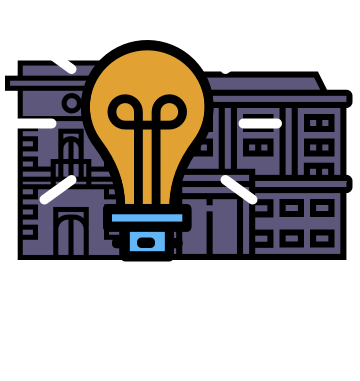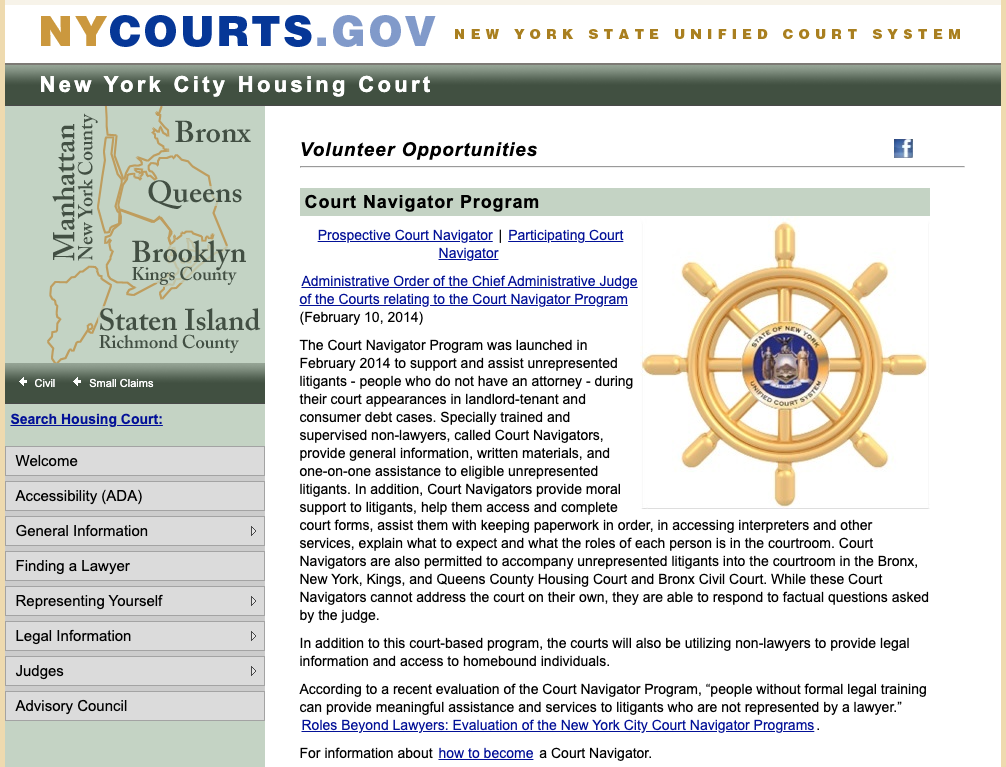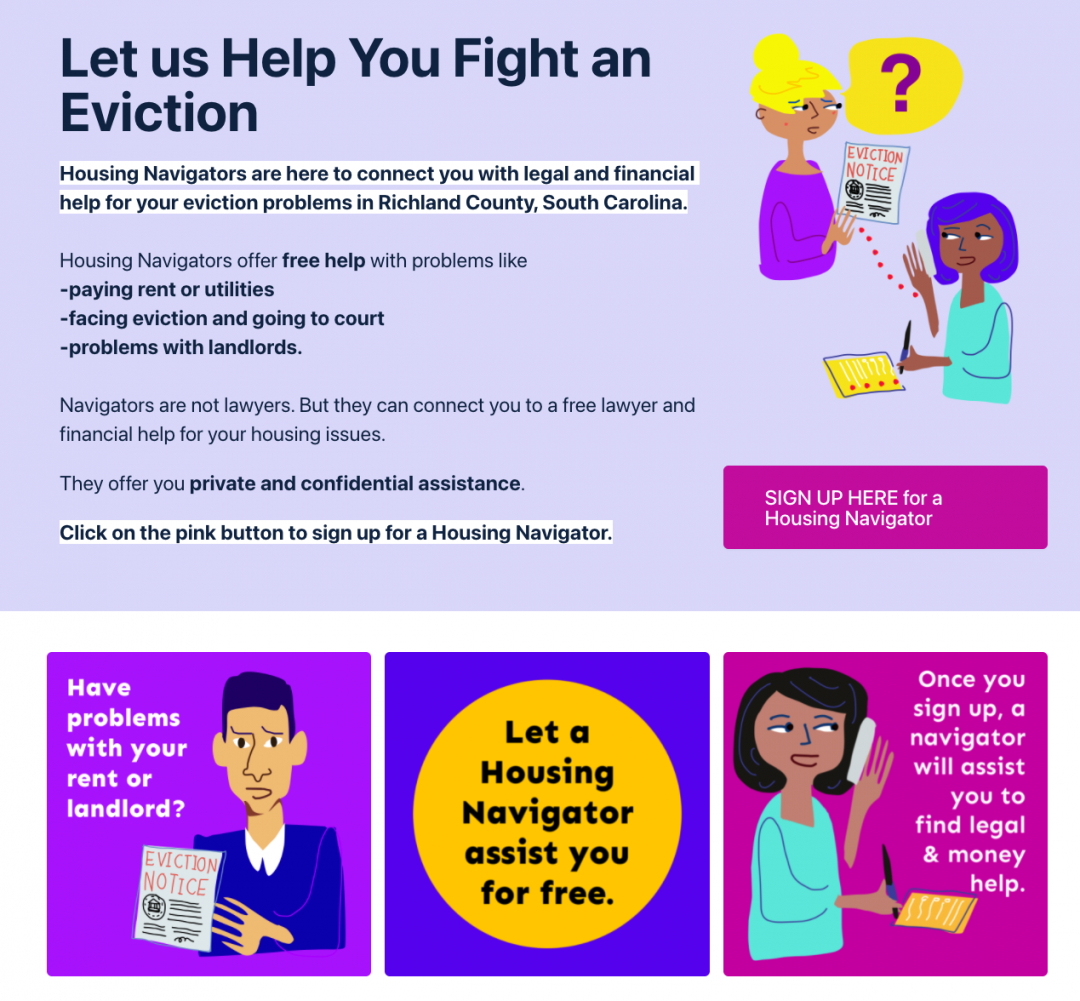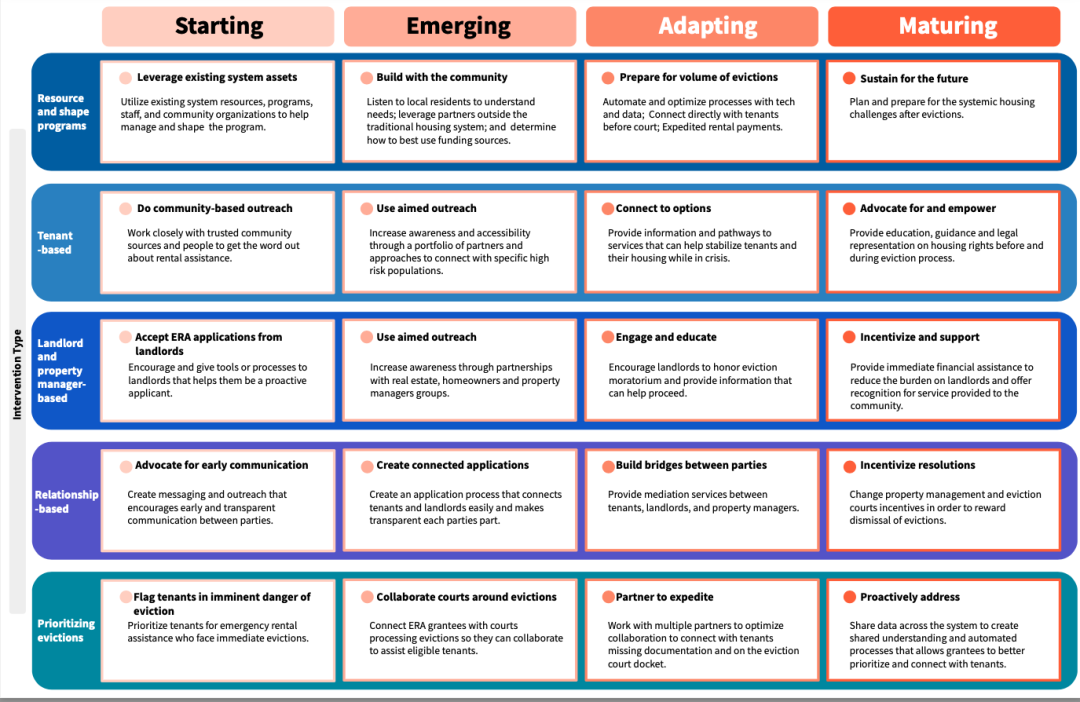Basic Information and Program Details
The New York City housing courts have had non-lawyer navigators to help litigants through the experience and procedure of court. This is particularly for landlord-tenant courts, and for litigants who are self-represented (without lawyers). Read more about the details of this program at this 2017 article.
The community navigators are volunteers from the community. Court staff train them on housing and debt court procedure, so that they can support and assist people who do not have a lawyer who are going through the courts. The Navigators do not provide specific legal advice. But they do provide general procedural guidance, moral support, form-filling guidance, and other assistance in preparing for their day in court — and making sure this court appearance goes as well as possible. Read more about the program’s details here at the NYC Courts website.
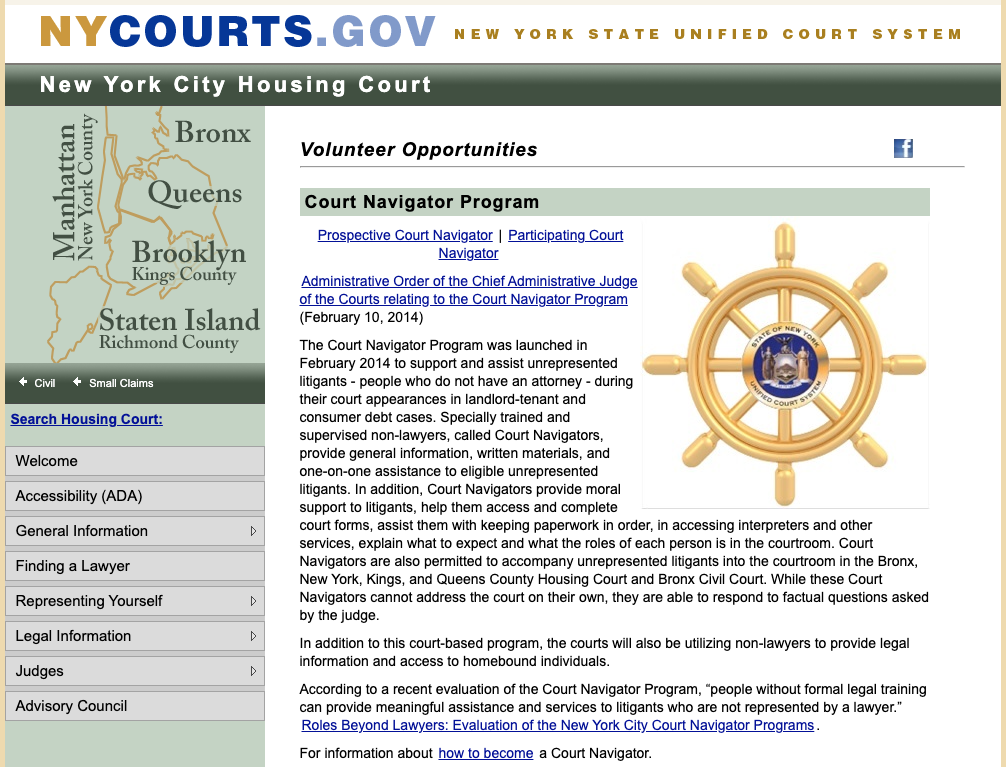
Evaluation
The research team of Rebecca Sandefur and Thomas Clarke evaluated the navigator program, and found it to be of high value to litigants and to the court. See this evaluation report at the American Bar Foundation website.
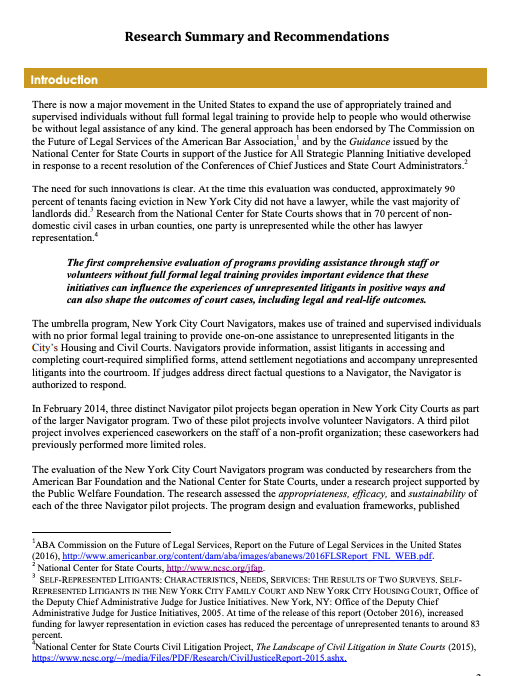
Evaluation Details
Sandefur and Clarke found in their evaluation that:
- People without formal legal training (like community navigators) can provide meaningful assistance and services to litigants who are not represented by a lawyer.
- Navigator services can impact several kinds of outcomes including litigants’ understanding of court processes, empowering them to present their side of the case, and providing more relevant information to the judicial decision-maker.
- The actual tasks that navigators perform, and thus their impact, are influenced by the philosophy of the court and attitudes of staff and judges.
- Plain language, standardized legal forms can improve legal outcomes. Expanded use of software programs (what in New York are called “DIY” programs) can help litigants prepare legal documents such as answers and counterclaims.
